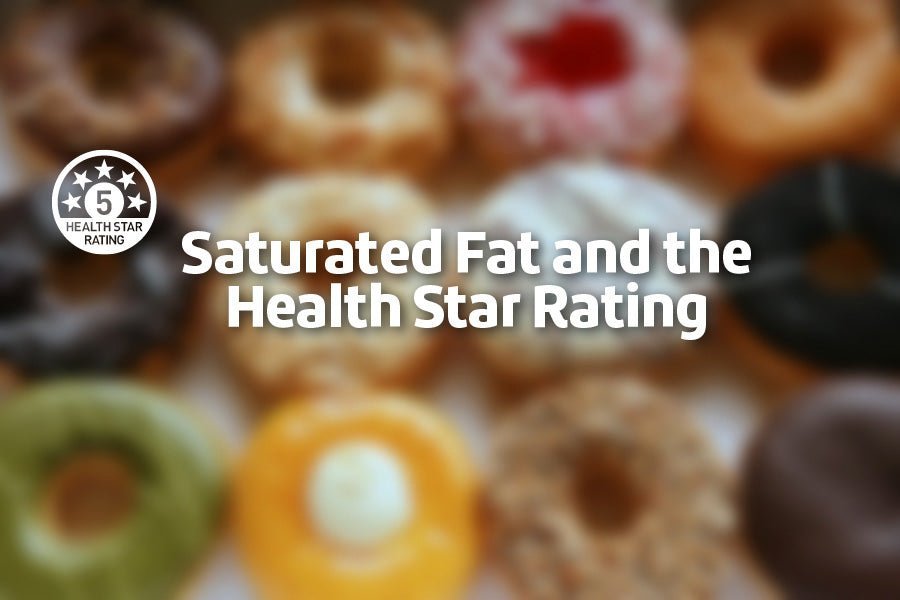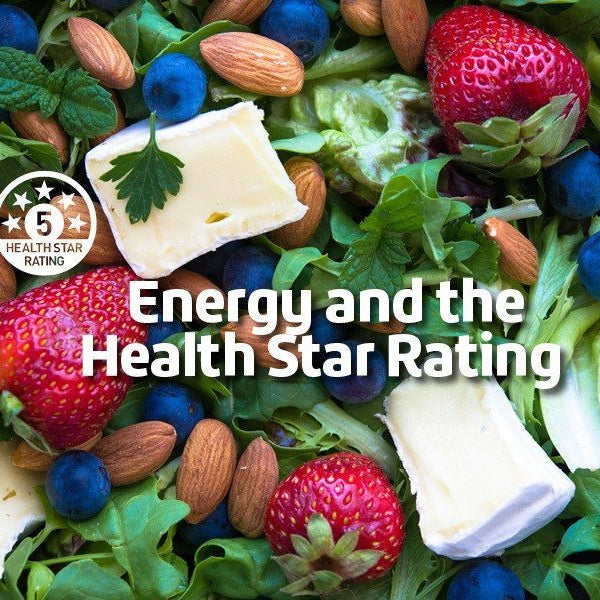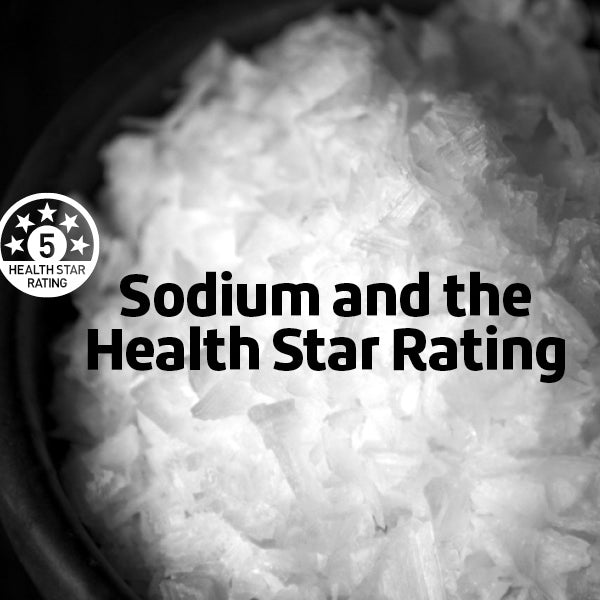
Saturated Fat and the Health Star Rating
We're looking at the different elements of the Health Star Rating system, which has been introduced to some food packaging in Australia recently, and we're following on from last week when we talked about energy; what it is, how we get it and how much we should be getting. Have a look at the previous blog post if you missed it; Health Star Rating - Energy.
What is saturated fat? Is it bad for us? As we continue to look at the Health Star Rating system, let's have a look at how saturated fat affects our bodies and what foods it is usually found in.
What is saturated fat?'
Saturated fat is a type of fat that is mostly found in animal products like meat, poultry, milk, cheese and butter. It is a type of fat that has been found to increase LDL (low-density lipoprotein); the bad type of cholesterol in our bodies (the good type of cholesterol in our bodies is called HDL, high-density lipoprotein). Eating too much saturated fat will increase the risk of coronary heart disease. It does this by leaving a layer of fat in arteries when consumed to excess, which increases the risk of a blockage. If the blockage occurs near the heart, this then causes a heart attack.
'Is it different to other fats?
Yes! There are a number of different fats which all affect our bodies in different ways:
- Saturated fat: increases LDL and decreases HDL
- Unsaturated fats:
- Monounsaturated fat: known to decrease LDL and increase HDL.
- Polyunsaturated fat: lowers LDL but has also been known to lower HDL
- Trans fat: increases LDL and decreases HDL
- Omega-3 fatty acids: an essential nutrient (meaning our bodies need it but are unable to produce it). Reduces the risk of coronary heart disease and boosts our immune system.
How much saturated fat should I be eating each day?
Fats are still necessary for our diets to give us energy, however which fats you eat and how much of them you eat are very important considerations. Choosing fats which are better for your cholesterol is a good first step. When you do choose to eat something high in saturated fat (like that late night Maccas run or that coffee and cake with a friend), choose to do so in moderation without overindulging.
The recommended daily intake for an average Australian adult is 16 grams. This equals about 7% of your daily intake of energy.
What foods are high in saturated fat?
There are a lot out there! Most commonly, the foods containing the most saturated fat include:
- Processed meats
- Pastry
- Fast foods
- Butter
- Full-fat dairy products
- Coconut oil
- Coconut milk
Sources of unsaturated fats include:
- Olives & olive oil
- Nuts
- Oily fish
- Lean meat
- Margarine
There has been so much publicity about low fat and no fat food products out there that it is hard to determine what the best food to eat actually is. For a detailed look at low fat labelling, have a look at this article. But choosing healthier options now will have the long term heart and weight benefits that will definitely be worth the trouble of learning and choosing the right products now.
Learn more, continue reading...
Articles:
https://www.thespruceeats.com/low-fat-versus-reduced-fat-2246231
https://www.thespruceeats.com/do-hydrogenated-oils-contain-trans-fats-2246050


